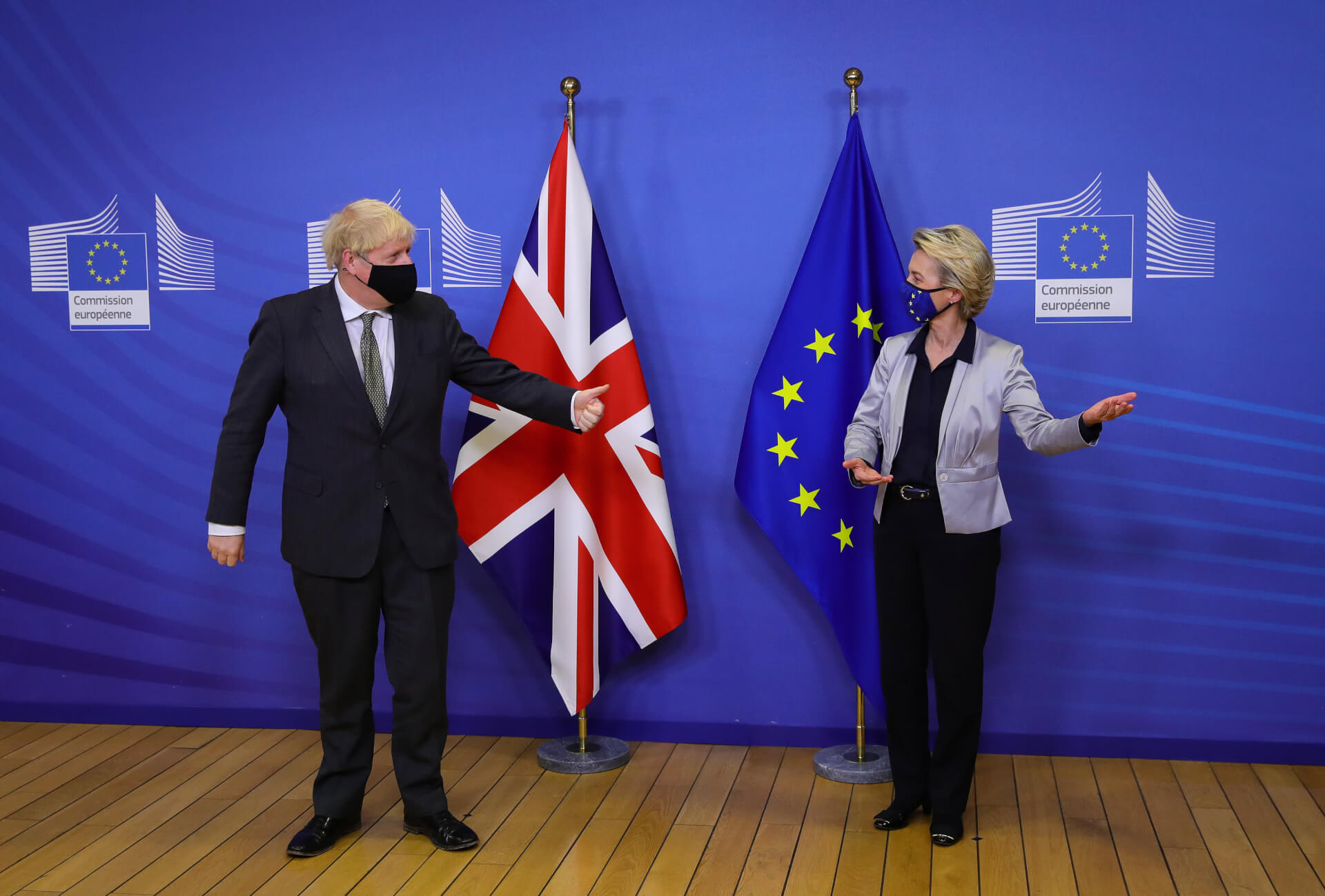On Monday, British Minister of State David Frost, addressing a meeting of the Conservative Party, said that the United Kingdom (UK) was contemplating unilateral measures if the Northern Ireland Protocol issue with the European Union (EU) is not resolved expeditiously. In response, the EU said that any such actions would be “extremely unhelpful.”
Addressing the conference, Frost said that the UK-EU post-Brexit agreement had “come apart even more quickly than we feared.” Further, he added, “Without an agreed solution, we will need to act, using the Article 16 safeguard mechanism, to address the impact the protocol is having on Northern Ireland.” Article 16 provides a mechanism for both parties of the protocol to take unilateral action in case the accord is not benefitting them. This, he said, was the “only way” to protect the interest of the British government. However, he said that the UK would continue to engage in talks with the EU and that triggering Article 16 would be the last resort. While Frost did not clearly indicate when Article 16 will be triggered, he gave the bloc ten days to respond to the UK’s demand to revise the accord, specifically on the issue of custom checks in the Irish Sea.
This comes as the EU rejected the UK’s demand for a “standstill period” to renegotiate a post-Brexit trade deal involving Northern Ireland. While the British side believes that there is a need to bring in a “new balance,” the bloc argues that abiding by the document was the UK’s “international legal obligation.” Moreover, the EU has refused to amend the Protocol, citing fear of goods entering its single market via the “hard-to-police” frontier between Britain and EU member Ireland without meeting regulatory standards.
The Northern Ireland issue has been causing several rifts between the EU and the UK. According to the post-Brexit agreement between the EU and UK, the two sides agreed to leave the border between Northern Ireland and Ireland, which is a member of the EU, open and free from checks of goods moving across the border. This is in contrast to the rest of the UK, which is subject to several checks in accordance with the EU regulations. The above-mentioned protocol found itself at the centre of a controversy when the EU accused the UK of exploiting this arrangement to import vaccines.
In addition to this, the Northern Ireland Protocol also calls for certain products entering Northern Ireland from the UK to be subject to checks by EU authorities. Consequently, several deliveries, including those of perishable food exports, were subject to delays. Responding to this, the UK accused the EU authorities of abusing the policies and deliberately delaying deliveries. Border staff on the Northern Ireland-UK border have also faced threats by the general public, forcing authorities to stop inspections at the Belfast and Larne ports.
If Article 16 is triggered, it could lead to a further deterioration of relations between the UK and the EU. It would also wash over the years-long efforts by both sides to come to a middle ground and materialise the trade deal, which would be detrimental to both the EU and the UK’s interests.
UK Warns of Unilateral Action in Ireland As EU Refuses to Proposed Changes
British Minister David Frost said that the UK would be forced to take unilateral action to protect its interest if the EU refused to renegotiate the terms of the post-Brexit trade deal.
October 5, 2021

SOURCE: CNBC
